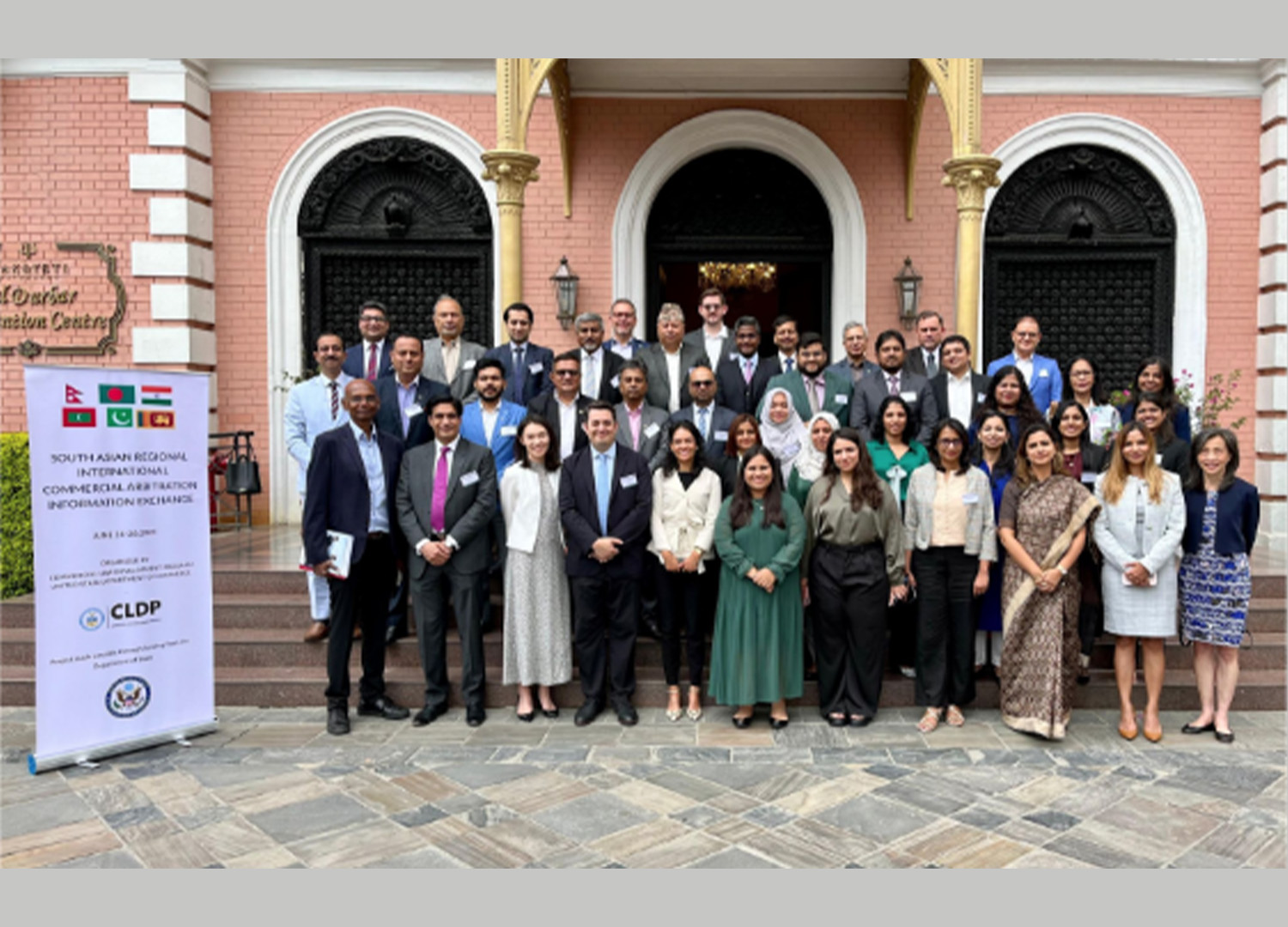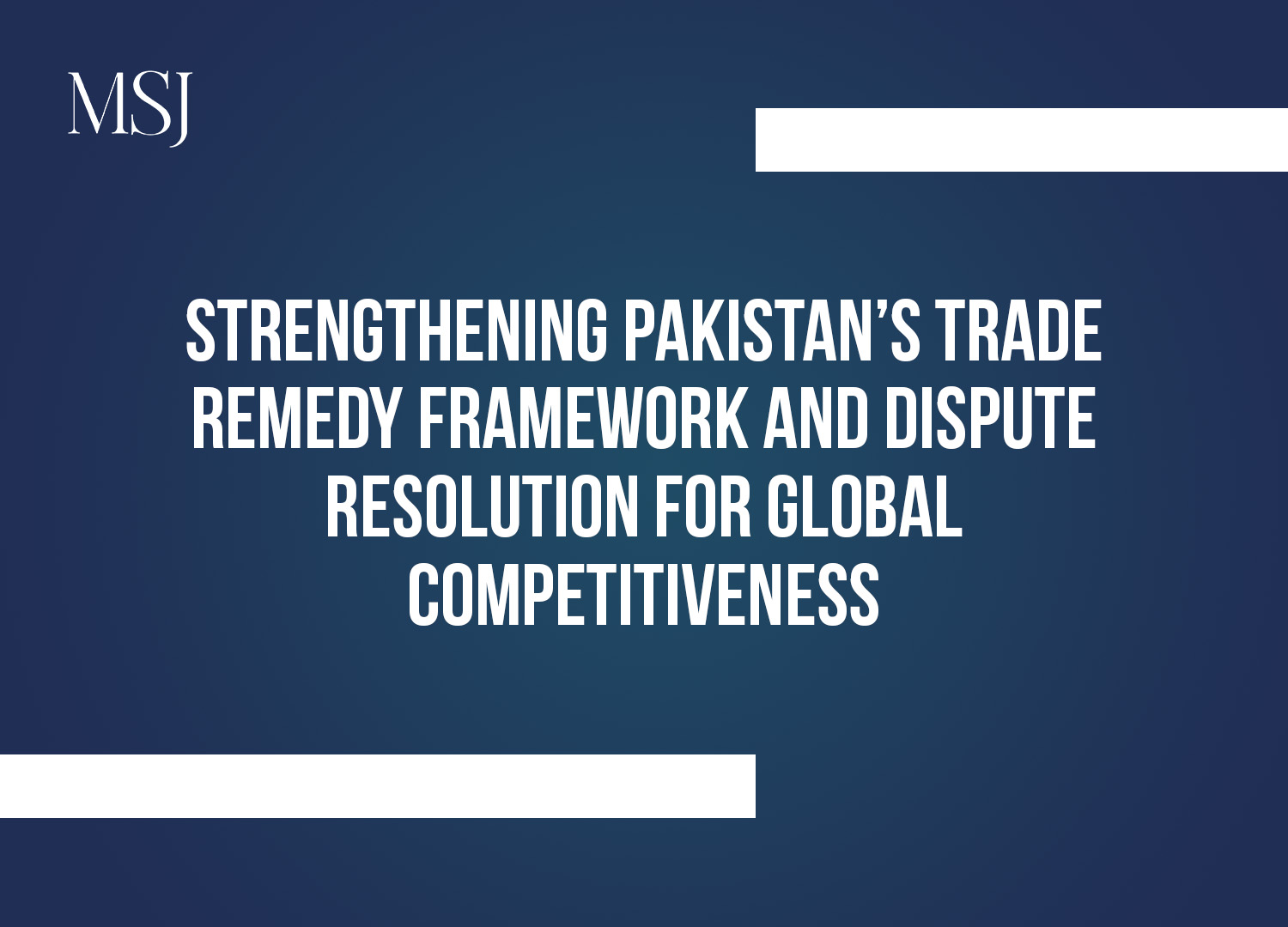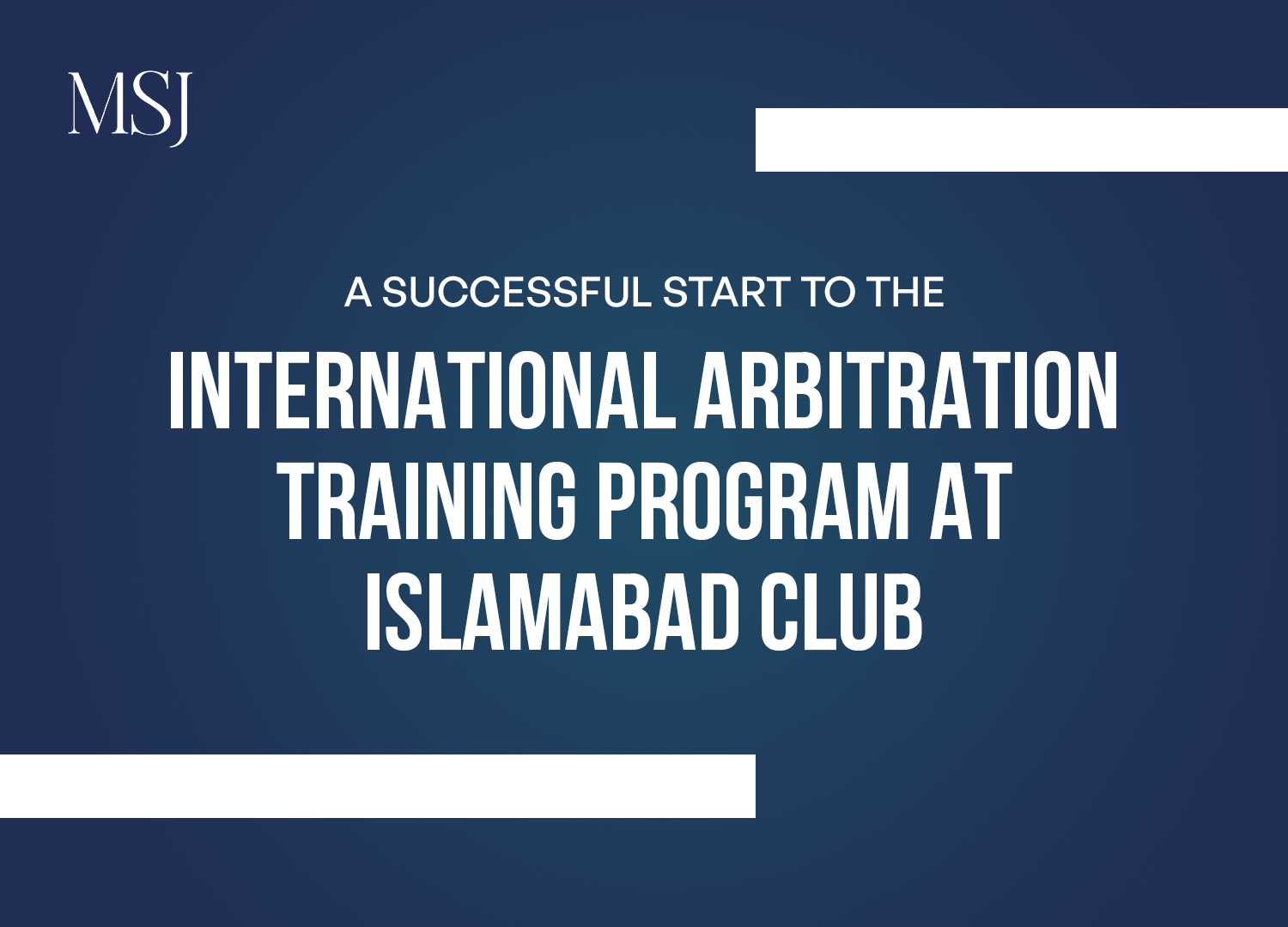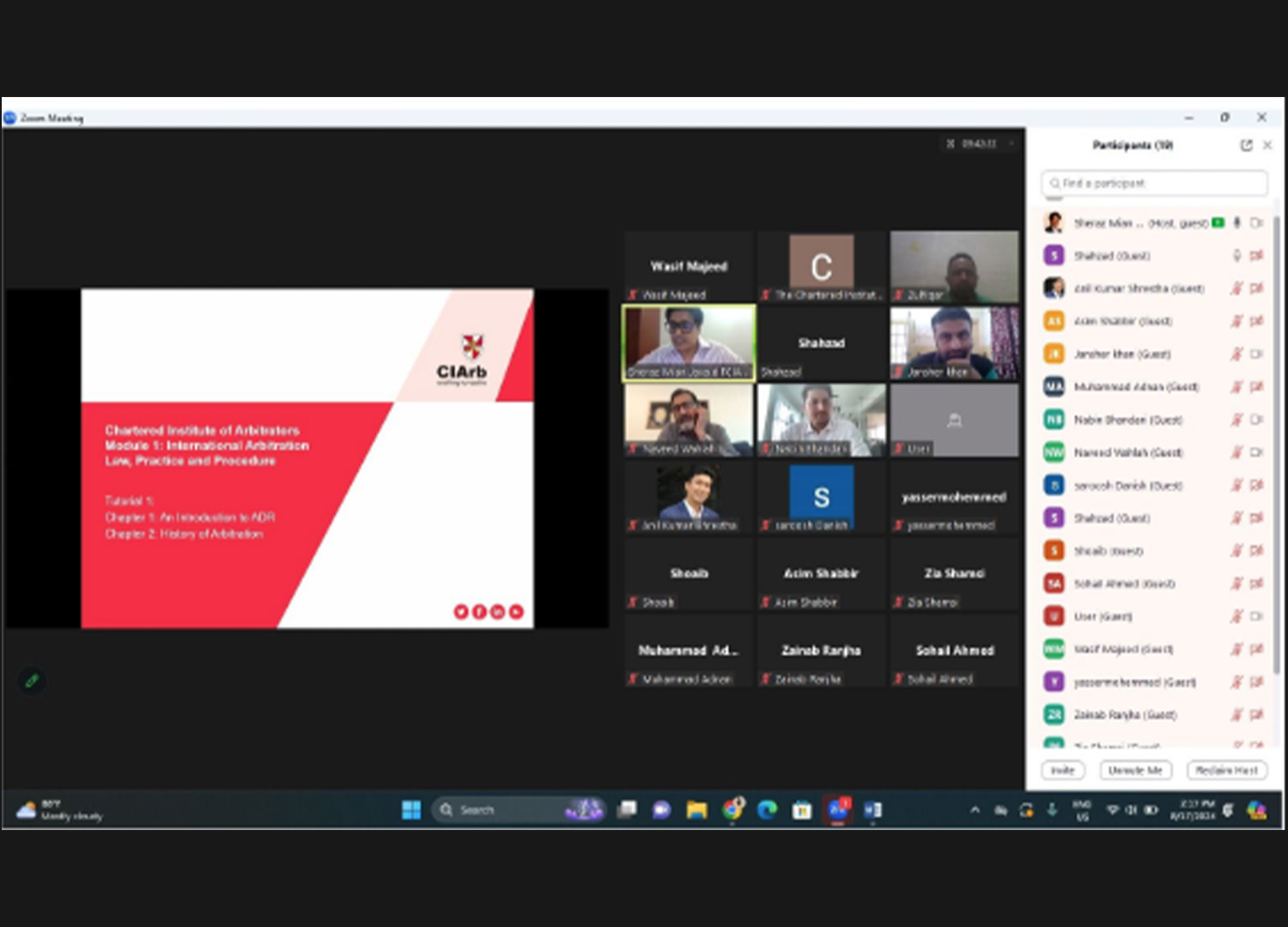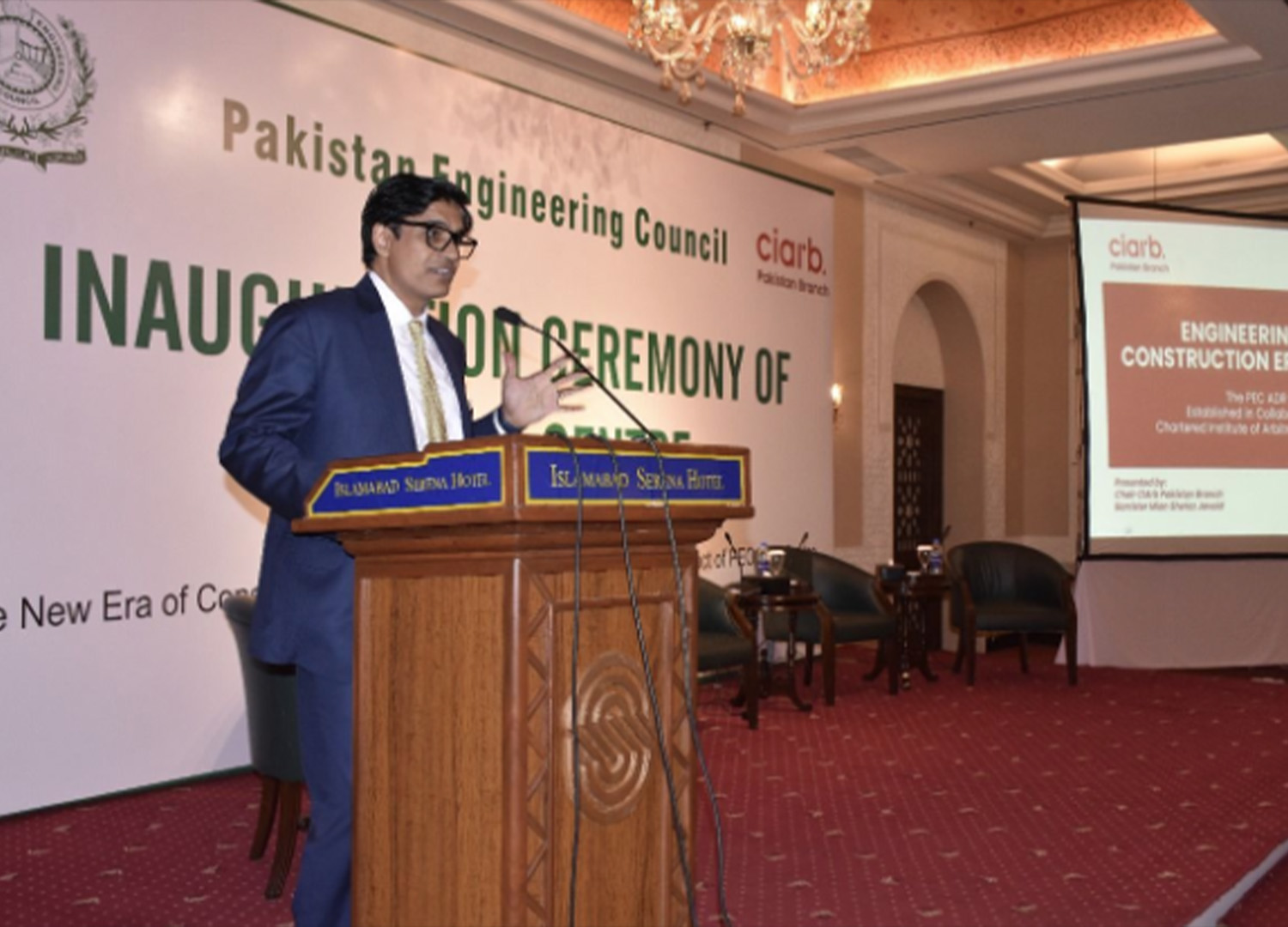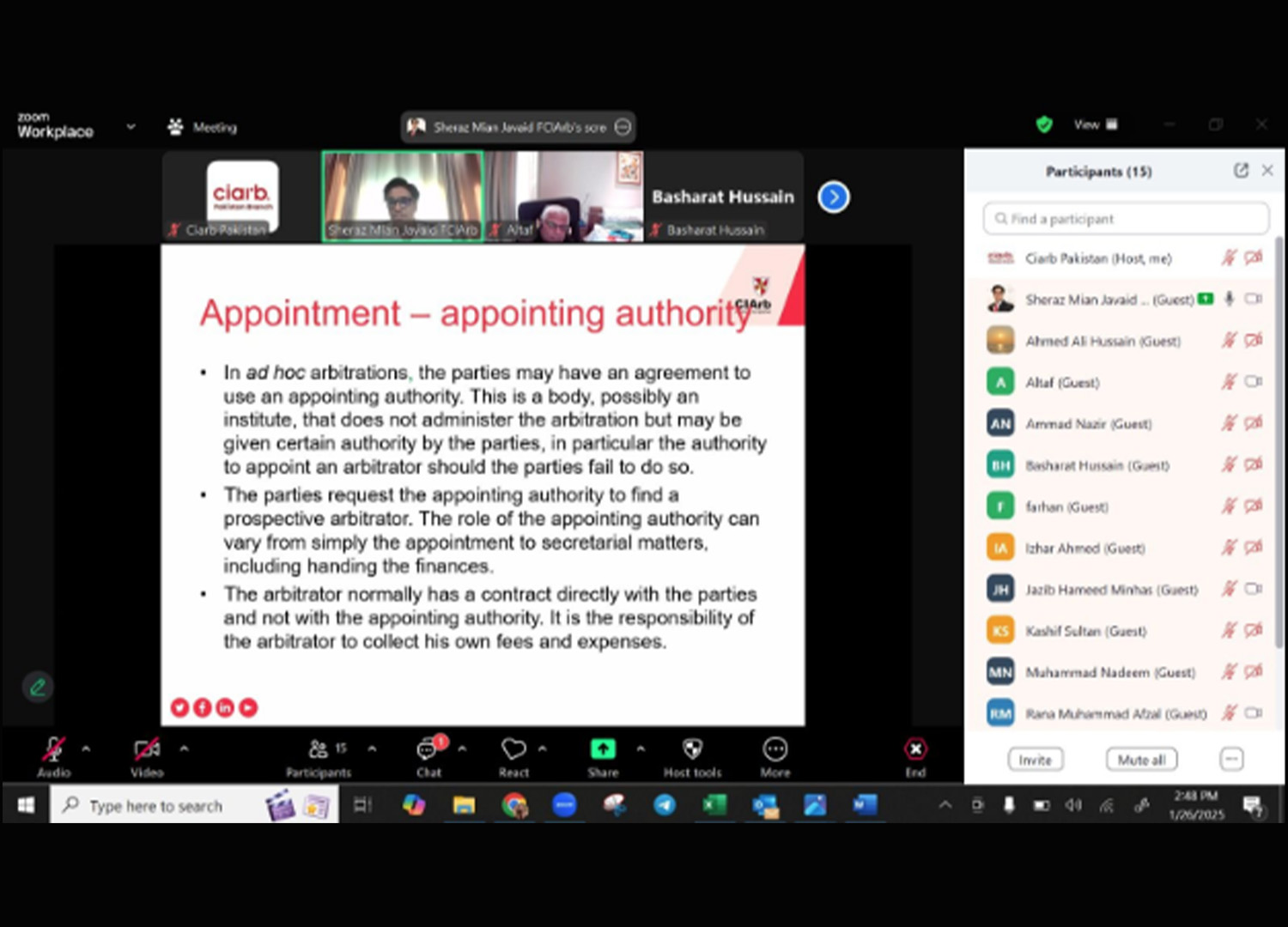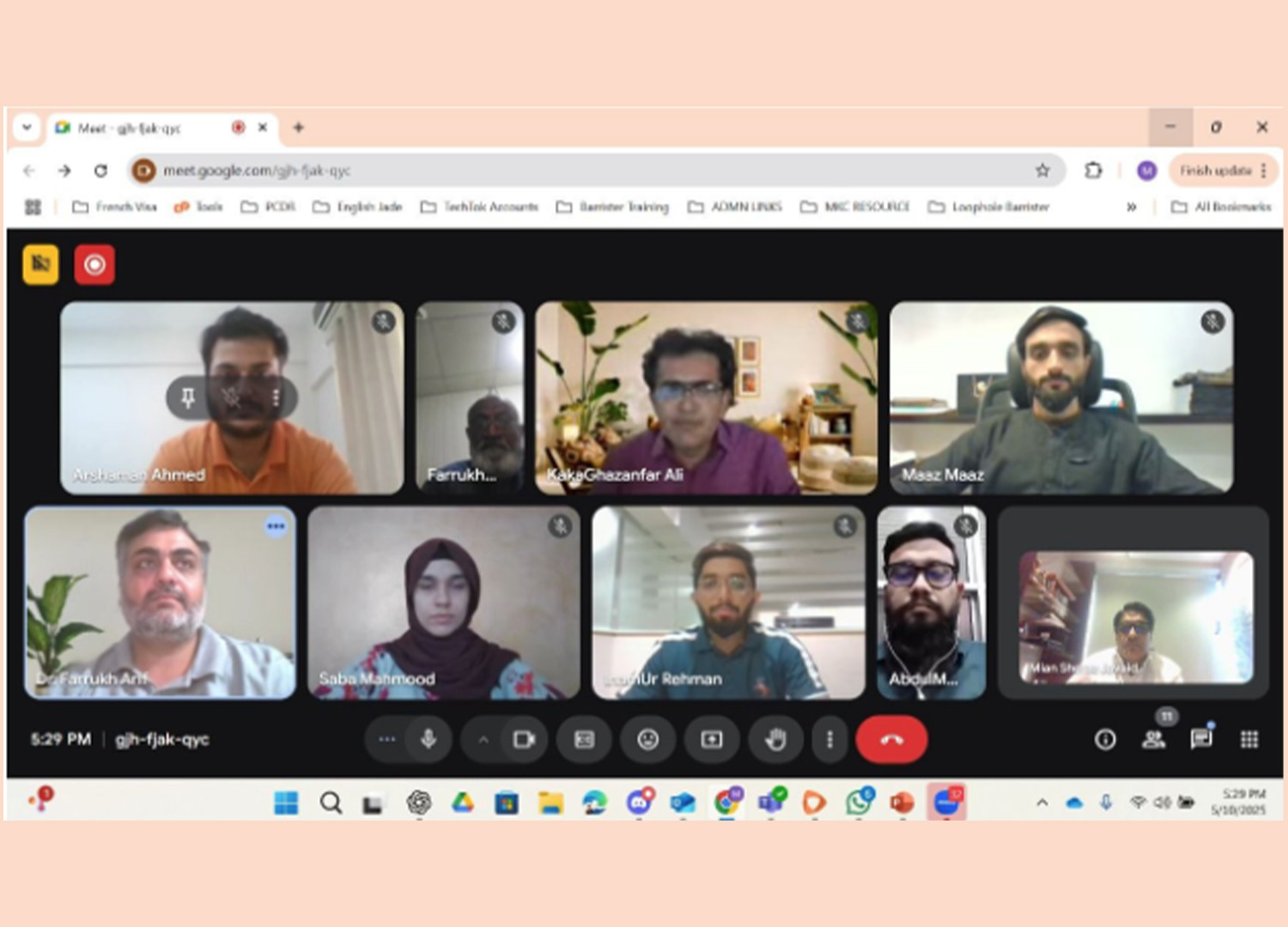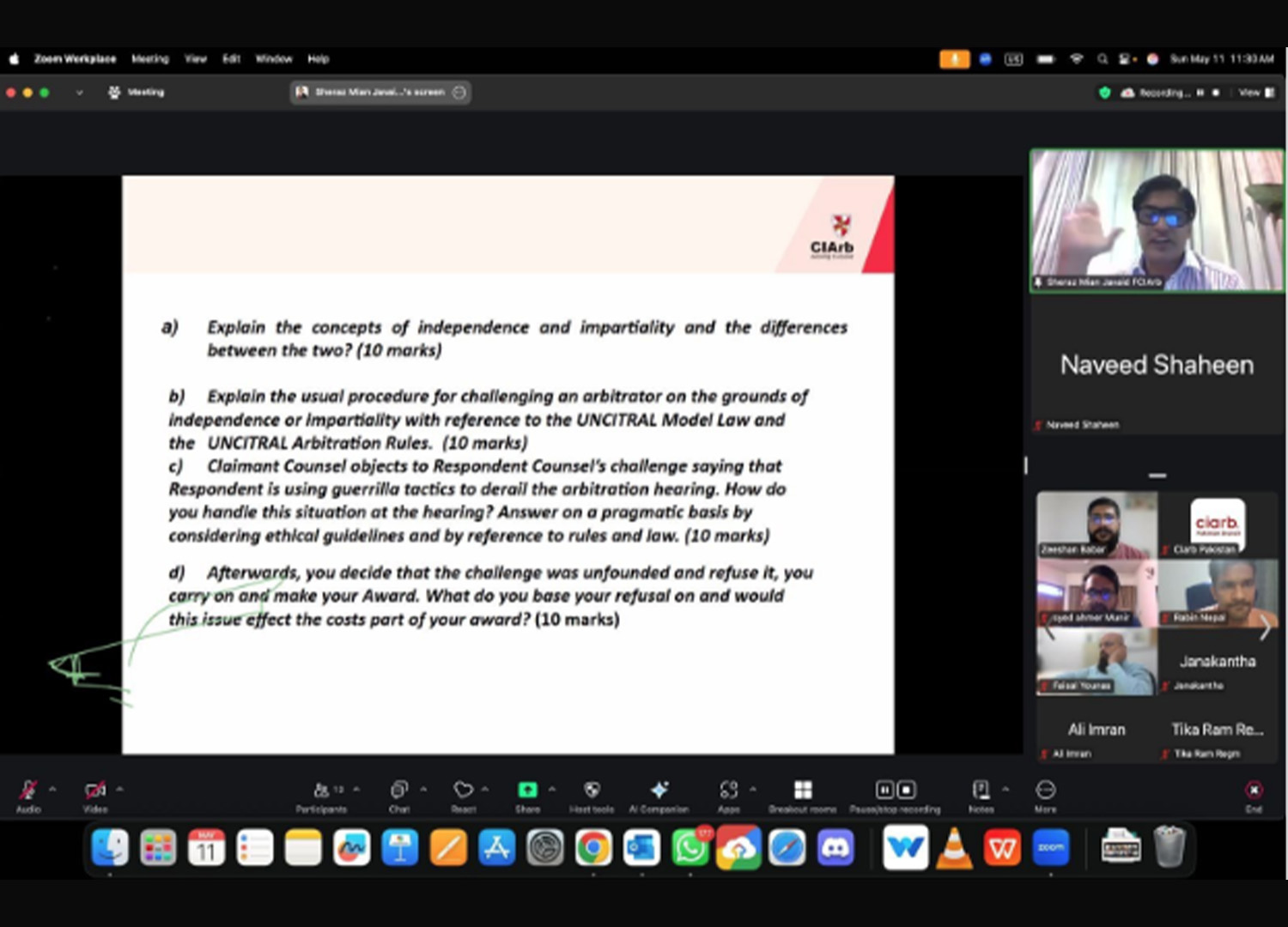MSJ Conducts Pioneering Two-Day Training on Arbitration and ADR for Punjab Bar Council in Lahore
Held in Lahore, the city where MSJ began his legal journey, the training brought together emerging legal practitioners, policy influencers, and experienced litigators for a hands-on, future-oriented program designed to elevate Pakistan’s arbitration standards to international levels.
“This wasn’t just a professional commitment—it was personal,” MSJ reflected. “To contribute to ADR development in Lahore is to help fortify the legal infrastructure of Pakistan from the very ground on which I first stood as a lawyer.”
Day 1: Legal Frameworks and Strategic Context
The first day offered a rigorous overview of Pakistan’s evolving arbitration regime, charting its transformation from the colonial-era Arbitration Act, 1940 to the newly proposed Arbitration Bill, 2024. MSJ led participants through a comparative analysis of domestic laws and international norms, introducing critical standards from UNCITRAL, ICC, and ICSID frameworks.
Key discussions included:
- The structural deficiencies of the old regime and how the new Bill addresses enforceability, party autonomy, and institutional arbitration;
- The importance of neutrality and due process in modern arbitration;
- And how Pakistani arbitration can integrate into global best practices without compromising its unique legal context.
Interactive policy discussions, real-world case studies, and strategic foresight sessions gave attendees a deeper understanding of the vision for Pakistan as a regional hub for ADR.
Day 2: Drafting, Practice, and Professional Pathways
The second day pivoted to application and skills development, allowing participants to get their hands on real-world scenarios. Through practical drafting sessions, they were trained to create clear, robust, and enforceable arbitration clauses, with tailored content for both domestic and international contracts.
MSJ emphasized the consequences of ambiguous drafting, urging participants to adopt a preventive mindset and reduce reliance on post-dispute remedies. “A well-drafted clause,” he noted, “is your first shield—it’s not just a formality, it’s a future-proofing tool.”
Sessions also explored:
- Procedural efficiencies, including timelines, party cooperation, and tribunal conduct;
- Common pitfalls, such as premature applications, scope creep, and issues of arbitrability;
- And effective case management strategies drawn from global best practices and MSJ’s personal experiences in complex multi-jurisdictional cases.
Career Development in Arbitration
One of the program’s most lauded features was a dedicated session on career planning in arbitration, where MSJ walked participants through the pathways to becoming arbitrators, tribunal secretaries, and specialist ADR counsel.
He offered actionable advice on:
- Building an ADR portfolio and selecting training programs from recognized global institutions;
- Securing appointments and building credibility in regional and international settings;
- And leveraging Pakistan’s growing ADR ecosystem—including opportunities at PIDW, CIArb Pakistan, and IMAC.
For many attendees, this was their first meaningful exposure to what it takes to enter and thrive in arbitration, and MSJ’s blend of strategic insight and personal narrative made the session particularly resonant.
Local Roots, Global Standards
Delivering this session in Lahore, at the Punjab Bar Council, held deep emotional significance for MSJ. “This hall saw the beginning of my journey,” he remarked. “To return here decades later and train the next generation of dispute resolution professionals is nothing short of a full-circle moment.”
He described the training as not only a legal engagement, but a nation-building exercise, emphasizing that legal modernization must be grounded in strong local institutions with international reach.
Acknowledgments and Call to Action
MSJ extended sincere thanks to the Ministry of Law and Justice and IMAC for organizing the session and reaffirmed his commitment to continuing such programs across the country. He also praised the energy, discipline, and insight of the participants, whose active involvement made the training dynamic and impactful.
“As we stand at the intersection of tradition and transformation, ADR is the bridge we need,” MSJ said in his closing remarks. “Together, we’re not just acquiring skills—we’re shaping the very future of justice delivery in Pakistan.”



